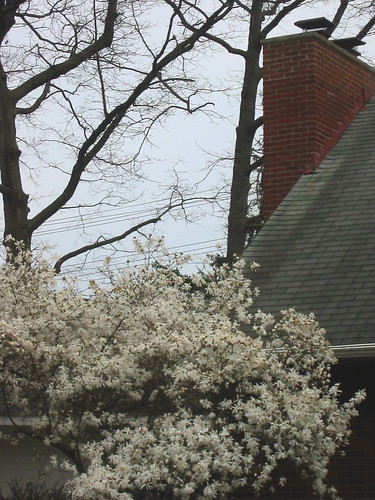
Flowering
THE SOIL
Yeah, the pluvial
Itch burrows into
Numbers and nothing
Is named for
Nothingness. The impudence
Of water pushing
Itself out into
The sully’d end
Of a comet
Snagging in ice-
Garbage, a star
Hanging a cartoon-
Agape O-mouth
Out, out there
Where nowhere is
Kept. Nobody knows
The all of
It, thigh-thick
Suture-vines, mitochondrial
Specks, or yens.
The sour obligatory
Indices, the banned
Places, the con
Artists. All of
Us dedicated to
Hoisting the burden
Of history’s snug
And perfervid libretto,
And singing drunkenly
In the rain.
The soil’s its
Own frontier, fleet
And low down
Where the yellow
Numbers root, lolling
Out in scriptural
Abandon, convening to
Number each thing
In the world.
—
Comrades. That enter’d the number’d world result of looking into a Neruda poem titled “El Sol,” one piece (number’d XX) of a late (1968) book originally titled Las manos del día (The Hands of Day), newly translated by William O’Daly and publish’d in a handsome bilingual edition by Copper Canyon Press. I dash’d through it (the writing) at high gallop, quasi-homonymicking (quasi-Houyhnhnm-ing it (horsing around) (except, naturally, when I “intuit’d” the wrongness of that constraint), avoiding (dropping) lines that seem’d pointlessly archaic (gods, queens and kings), translating “straight” when that seem’d right. Avoid’d looking at O’Daly’s version. Next, at a canter, muscled the thing into my pointless three-by-threes (in the course of doing so: accreting, re-seeing, pushing (if such is measurable) in the direction of “sense”). (One thinks: it is entirely possible that—one sunset years hence pluvial day, tired of pulling fat green-horn’d worms off the tomato plants and mashing them under my plaid-slipper’d feet—I’ll go through the thing at a trot or a walk, and make a numberable thing of the world thing out of it. Something for a referee, or a clamorous (I nearly wrote glamorous) self-appoint’d “somebody,” or a “chair” of something or other. Ah, rosy ambition! That crucifix!) Here’s the original:
EL SOLAnd William O’Daly’s translation:
Ya se sabe: la lluvia
lavó y borró los nombres.
Nadie se llama nada.
El agua impuso
en fin,
un comienzo,
una estrella apagada
en donde
no
tienen nombre
los días
ni los reinos,
ni el río.
Esto no se sabía
hasta que todos
yendo y viniendo
de sus
obligaciones
indicaban las plazas
con el dedo
y averiguaban en las librerías
la historia y geografía
de la región borrada
por la lluvia.
Hasta que el sol bajó
de su frontera
y fue escribiendo
nombres
amarillos
sobre todas las cosas
de este mundo.
THE SUNThat ending reminiscent of William Carlos Williams’s “I lie here thinking of you:— / / the stain of love / is upon the world! / Yellow, yellow, yellow . . .” The difference (huge) being: Neruda’s poem addresses a political region (the fingers accusatory, the erasures unjust), whereas Williams’s piece is “for” a distant personal “you” (“far off there under / the wine-red selvage of the west!”)
Now everyone knows: the rain
bathed and erased the names.
No one has a name.
The water imposed,
in brief,
a beginning,
an extinguished star
where the days
have
no name,
nor the kingdoms,
nor the river.
Nobody knew
until all those
going and coming
from their
obligations
were pointing at the plazas
with their finger
and were researching in the bookstores
the history and geography
of the region erased
by the rain.
Until the sun set
beyond its frontier
and was writing
yellow
names
over all the things
of this world.
—
The impulse for the “translating”—again, Tim Atkins’s terrific Horace (O Books, 2007), something I’m working through with due stealth and commitment. Tonal mischief is the thing. “ODES II / 20”:
Although lack of theory prevents me from perceivingWhat, Jerry Lee Lewis meets Frantz Fanon? Atkins makes Horace’s six quatrains revert to six lines—brilliant move. Thus “Women of my age usually put on weight” descends fleetly out of:
The true nature of my oppression, Maecenas
Women of my age usually put on weight
This is the last time I appear in an avant-garde movie
What I’d really like to do is direct
My hands are shaking and my knees are weak
Even now the rough skin is settling around(A. S. Kline translating.)
my ankles, and now above them I’ve become
a snow-white swan, and soft feathers are
emerging over my arms and shoulders.
—
A note. I intend henceforth to reprise a habit of my Hotel Point days: that of acknowledging (in some manner) each and every book (or magazine) received, or bought. Try to do so in a timely way. Try to offer remarks, quotables, riffs, &c. (for most, most likely short of a beastly “full” “review”—or what’s fob’d off for such in these parts), something, that is, more substantial for each than vaunt’d (bury’d) item-status on a list. D’accordo?
